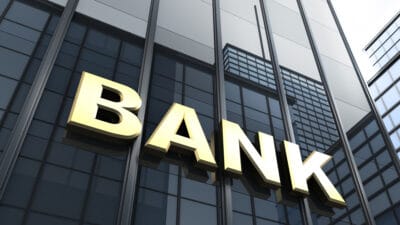It might be easy to forget in 2024, but until relatively recently, it was common for savings accounts and term deposits from banks to offer laughably low rates of return. Especially compared to the dividends available from ASX banks like Westpac Banking Corp (ASX: WBC).
Between 2012 and 2022, interest rates were at historic lows. That definition was redefined between 2020 and 2022 when rates were reduced to just 0.1% in light of the global pandemic.
But 2022 saw inflation take off, and, as a result, the Reserve Bank of Australia (RBA) raised interest rates at the sharpest trajectory in history. That saw the cash rate rise from 0.1% in April of 2022 to 4.35% by December last year.
Whilst this might be unpleasant for most Australians, particularly mortgage holders, it also heralded a new era for cash savers.
When interest rates rise, so do the interest rates investors enjoy on term deposits, savings accounts and government bonds.
Back in 2021, a saver would be lucky to get an interest rate of 1% on a multi-year term deposit. In contrast, the dividend yields from bank shares like Westpac were still well above 5%. Those dividends usually come with full franking credits attached too, making the choice between the two an easy one for all but for the most conservative, risk-averse investors.
But what about today, with interest rates at decade highs? Are ASX bank dividends from the likes of Westpac still a better investment for yield hunters?
Are Westpac's dividends better than its term deposits?
Well, let's start at the start. Right now, Westpac shares are trading on a dividend yield of 5.46%. That comes from the bank's last two dividend payments, which consisted of December's final dividend of 72 cents per share, as well as last June's interim payment of 70 cents per share. Both dividends came with full franking credits.
Plugging those dividends into the current Westpac share price of $25.99, and we get that 5.46% trailing yield. If we include the value of those franking credits, we get a grossed-up yield of 7.8%.
So how do term deposits compare?
Well, we'll look at Westpac's offerings to start with. Right now, the top term deposit interest rate one can bag from Westpac is 4.8%. That's reportedly a special offer valid for 11-month term deposits. Other lengths will attract an interest rate of between 3.75% and 4.25%.
Other banks are offering similar rates. The highest available for a term deposit right now from an Australian financial institution is around 5.15%.
So the Westpac dividend is incontrovertibly the superior investment for income seekers if maximising returns is your goal. Particularly taking those franking credits into account.
However, that of course assumes Westpac will continue to pay out the same or higher rates of income over the next 12 months as it did over the last 12. That's not an assumption any investor can or should make. Dividends are never guaranteed, even from ASX bank shares.
As such, investors who rely on dividends and interest income to pay their bills might prefer the safety of a term deposit, or even splitting their funds between dividend shares and cash. That safety does have a price in the form of that lower interest rate. But that's how the financial world usually works.









